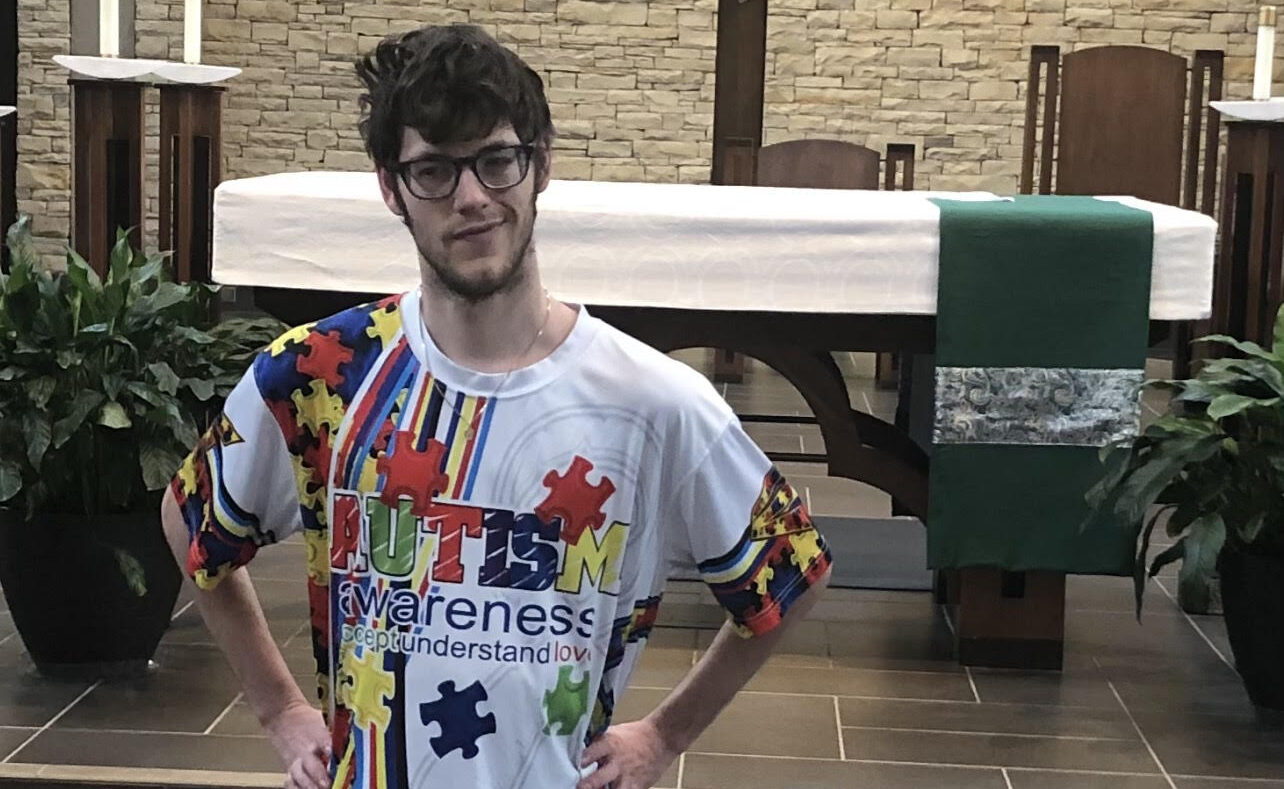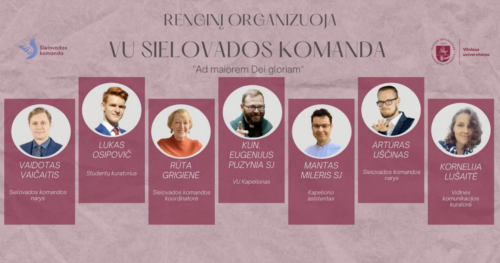Each one of us has our own problems and trials. For some, it is the struggle of dealing with peer pressure and injustices. For others, it is people’s indignation and selfishness.
For me, a dilemma I face every day is the fact that I am autistic and gay. And I know that some conservative members of the church see lesbian, gay, transgender and bisexual people as both a danger and threat to the current status quo.
This is a perspective that is misconstrued and must be addressed from someone who faces it on a daily basis. I want to give you the opportunity to put yourself into my shoes.
The dilemma that I face is being true to myself as a member of the LGBT community, while staying true to my Catholic faith.
I am autistic
I was diagnosed with autism in the second grade. Early on, I saw autism as a curse, because I could not grapple with certain concepts and ideals. This ties in directly with my Catholic faith. Autism is not something to be disgusted by or ignored. It is a spectrum.
Some people are mildly affected by autism; others may experience severe effects. It is not fair to judge an autistic person by referencing another, since we are all unique. While it is true that I have my own personal quirks, I see myself as someone with a unique gift who is also blessed by God. I know that I can make an impact, tying into how I live out my life as an autistic, gay Catholic.
As stated by Father James Martin, S.J., in his book Becoming Who You Are:
“God desires for us to be the persons we were created to be: to be simply and purely ourselves, and in this state to love God and to let ourselves be loved by God. It is a double journey, really: finding God means allowing ourselves to be found by God. And finding our true selves means allowing God to find and reveal our true selves to us.”
With autism, I have faced many obstacles and people have told me that I cannot function in today’s world. While their criticism has torn me up, I have come back stronger. And to those who say that an autistic person cannot be a priest or a member of a religious order, I say, “To hell with that.” You do not know what it is like having to repeatedly tell yourself to stay “calm, cool, collected” over and over again.
One of the many abilities that my autism affords me is being able to memorize vast quantities of information, while allowing me to reflect on the world and its problems. A disadvantage of my autism is, of course, I do not pick up on social cues that well.
“While it is true that I have my own quirks and personalities that are different from others, I see myself as someone with a unique gift that is blessed by God.”
Autism should not be a factor when it comes to the path that God wants you to have in life. Autism is not a disease or a curse. It shouldn’t be a cause for constant rejection by the church simply because the church doesn’t want to understand the person with this unique gift given by Our Lord.
When I began applying to religious orders, I told them that I was diagnosed with autism, and they would always say, “We don’t think you would be a good fit because you have autism.” This chain of events started with a religious order in Kentucky. The vocations director corresponded with me over email, and when I mentioned to him that I was autistic, his reply was, “Because you have autism, you would not be a good fit.”
This made me sad and angry. And ever since that first encounter, I have experienced such rejection time and again.
If a candidate for the priesthood or religious life is autistic, see them as a person, not as someone with a disability, and judge them by who they are, not by past experiences or prejudices. Autism shows that there are those who have greater capacity to love and understand and they are not meant to be hidden.
“Some conservative members of the church see lesbian, gay, transgender and bisexual people as both a danger and threat to the current status quo.”
And I am gay
On the other side of the coin, I’ve had to confront the fact that I am gay. This has been a lifelong struggle, not only for me, but for those who care about my well-being. It took countless hours of spiritual direction, support from friends and the courage to look at myself to realize that what I was hiding was not only hurting me, but that I was deceiving myself.
In this deception, denial clawed to the surface while guilt and shame dragged me down. Thinking that something was wrong with me, I hurt not only my relationships with family, but also with my friends, ostracizing myself from the world. Searching my soul, I came to an important realization: just because I am gay does not mean that I am condemned to hell. There is simply no other choice in this matter.
I define being gay as being attracted to men and not to women. I have no control over how Our Lord made me, just as I did not choose to whom I am attracted. I have tried covering up the fact that I am gay by hiding that part of me and closing myself off to what I had perceived to be a sin.
My dilemma is that I must still retain my Catholic faith, since it is an integral part of who I am. As a result, I recognize that even those who say that they are my brothers and sisters in Christ may discriminate against me simply because I am who I was created to be.
Being lesbian, gay, bisexual and/or transgender is not a disease. We are all human and part of one body: the Body of Christ. Each member of this unique body plays an integral part, despite our differences. Our differences should not mean that people ostracize, discriminate or condemn us. We are all humans created by our Lord, and all we want to be loved.
Love one another
One of the most common phrases used to discriminate against LGBTQ Catholics is, “Hate the sin, love the sinner.” This is harmful because it makes us feel unloved and unwanted. Fundamentally, you can’t love someone whom you are also judging at the same time. As Pope Francis states, “If a person is gay and seeks God and has good will, who am I to judge?”
To survive into the next century, the church must see and recognize that love is love, and that those who are born in the LGBTQ community are made that way. No person asked to be attracted to the same sex; it’s definitely not a choice. Simply put, who would want to be different?
The same goes for those who have disabilities like both high- and low-functioning Autism, Asperger syndrome and Down’s syndrome. It is worse when a person faces church-led discrimination not only because of who they are but whom they love.
As I had mentioned, because of my autism and my LGBTQ identity, and potentially both, I have been denied from possible paths of service and leadership in the church. But I still believe that we all have an important roles to play in the life of the church. If you cut off a part of the Body of Christ, you are ostracizing those who need to be heard. The church must stop the discrimination against both LGBTQ Catholics and Catholics with disabilities. We have been hurt, marginalized, and scarred.
“Just because I am gay, that does not mean that I am condemned to hell for simply being who I was created to be. There is simply no other choice in this matter.”
In the Gospel of John (13:34), Christ gives his disciples a new commandment at the Last Supper: “Love one another, as I have loved you, that you also love one another.” This passage defines the LGBTQ community. We simply desire to be loved and to have our voices heard by the church.
Being gay and autistic have shaped me as a Catholic because I realize that this is who I am, and this is one of many crosses that I will bear. There is much work to be done building bridges between autistic people, the LGBTQ community and Catholics of different perspectives. With prayer, hope and trust, I know that the church will change. There are many parishes that allow LGBT Catholics to call home and feel welcomed. I was fortunate enough to find one myself. Others are not as lucky.
The 20th-century Carmelite nun St. Thérèse of Lisieux said, “Miss no single opportunity of making some small sacrifice, here by a smiling look, there by a kindly word; always doing the smallest right and doing it all for love.”
Regardless of age, disability, ethnicity, gender, sexual orientation or race, we are all human, created in God’s image. The church needs to be the catalyst for human rights, not an oppressor. That’s why, leading by example as a Catholic, I live my life according to the creed, “Love conquers all.”




